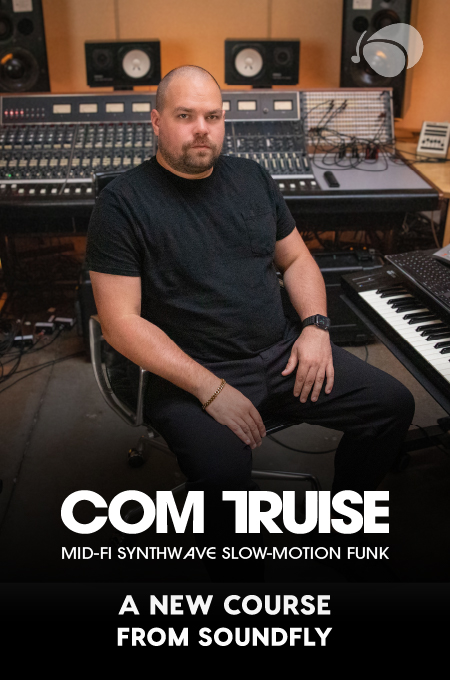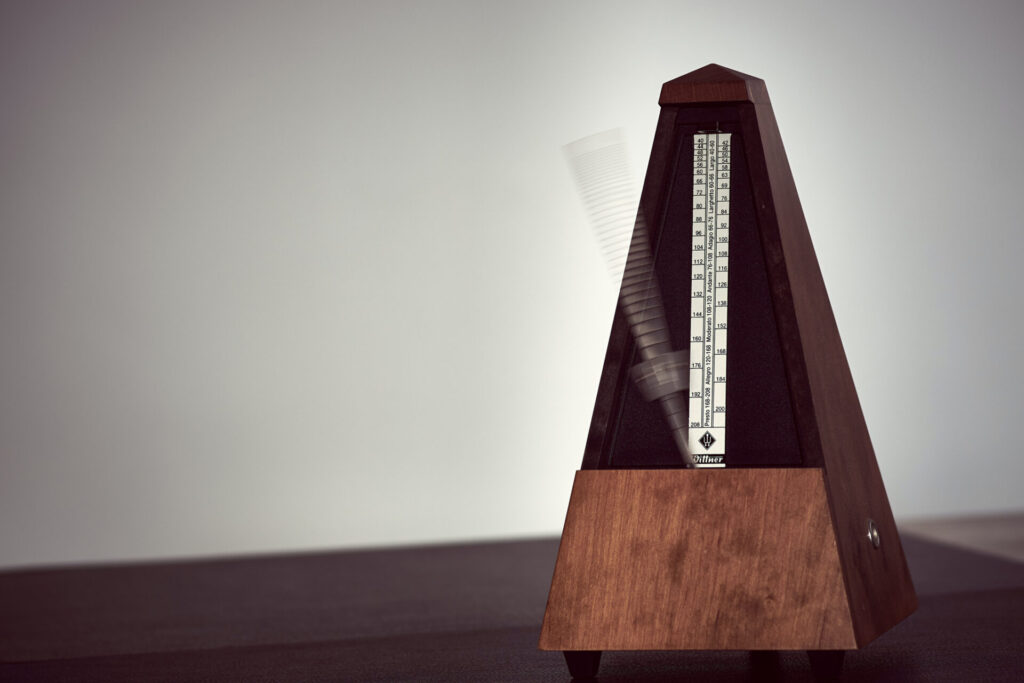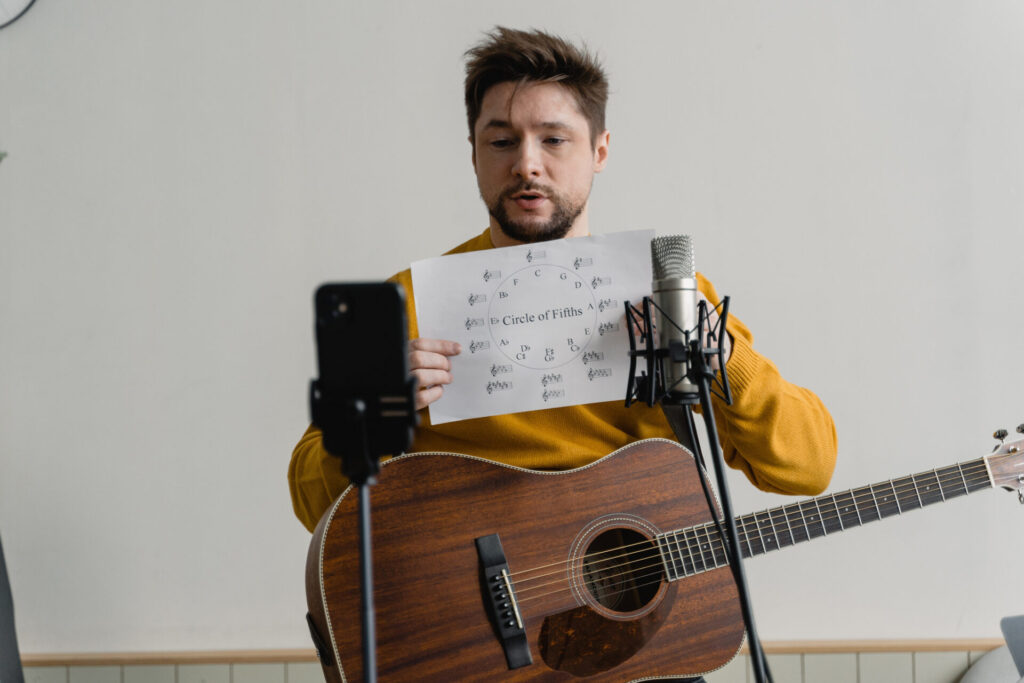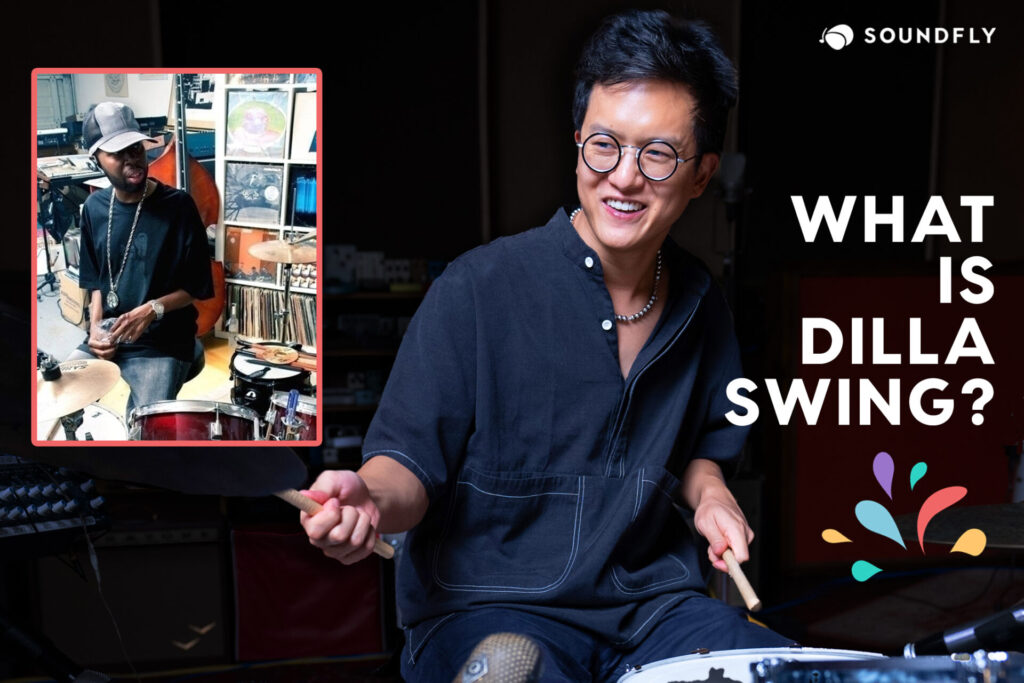In the above video, featured in our free online course, Digital Pedalboards with Kaki King, our instructor, guitarist and composer Kaki King, shares her reasons for making the switch to a digital pedalboard, after years of touring around with a full rig of hardware. Here, she’s using Apple’s MainStage 3 software with a MIDI trigger pedal and an expression pedal.
Guitar purists will no doubt scoff at this modern, practical move; but, then again, there’s no more innovative and celebrated contemporary guitarist out there than Kaki King. She’s been called “a genre unto herself” by Rolling Stone. And in the free course we created together, she dives into how to get the sounds you want from your guitar on stage, but with the convenience and practicality of having an all-in-one solution, without needing to rely upon a chain of pedals, all made in different countries with different power requirements.
Perhaps the most compelling argument Kaki makes for ditching the physical pedalboard has to do with the way she’s able to fluidly integrate the laptop into the sonic experience of her instrumental live show, without her having to be a performer on stage behind a computer. With MainStage, she can set up the effects of her entire show, and then put the laptop aside, out of view. She’ll then move through the effects with a single pedal at her feet, connected to the laptop via USB, and she never has to worry about taking her hands off the guitar to change the settings.
She says of her set up,
“It’s nice to have that piece of equipment disappear… Even though I’m using a computer, it’s such a low-profile experience for the audience.”
In the course, Kaki guides us through how to use the software, set up some effects patches and start to gain an understanding of the ways in which you can integrate this tool into your own music-making via customizable settings and options. Whether you’re looking to make electronic music using your guitar, or simply looking for a viable replacement to touring with a cumbersome pedalboard, check out this informative and fun free course, Digital Pedalboards with Kaki King.
Here’s Kaki in action with her projection-mapped guitar display in “Surface Changes.”
More About Kaki King
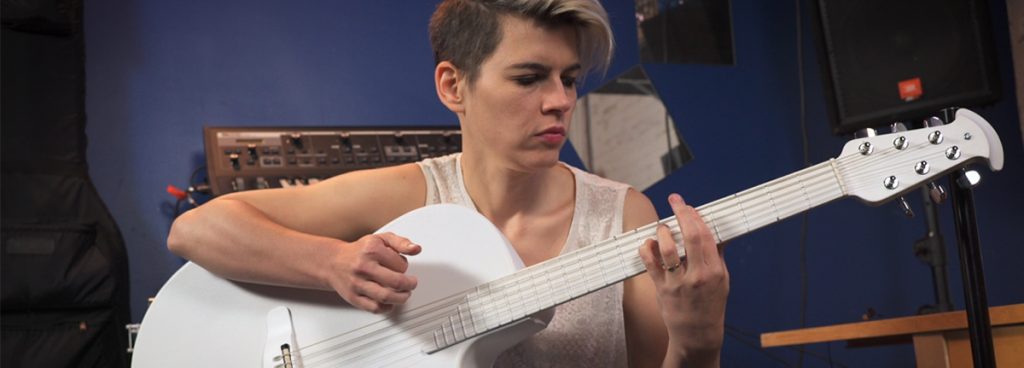
Brooklyn-based composer and guitarist Kaki King has released 8 albums over the past 13 years. She has performed on every continent over the course of multiple world tours, and has presented her work in a variety of prestigious arts centers, including the Kennedy Center, MoMA, LACMA, and the Met. She has created music for numerous film and TV soundtracks, including August Rush and Sean Penn’s Into the Wild, for which she received a Golden Globe nomination for Best Original Score.
Her latest work, The Neck Is a Bridge to the Body, is Kaki at her visionary best: deconstructing and redefining the role of solo instrumental artist though virtuosic technique, insatiable imagination, and boundless humanity. This groundbreaking new multi-media performance uses projection mapping to present the guitar as an ontological tabula rasa in a creation myth unlike any other, where luminous visions of genesis and death, textures and skins, are cast onto her signature Ovation Adamas guitar which has been customized specifically for this production.
In addition to her own solo work, Kaki has also collaborated with NYC-based string quartet ETHEL, and has performed at Carnegie Hall, premiering a classical piece commissioned by Pulitzer Prize-winning composer David Lang. In April 2017, Kaki recorded her first full-length album with a symphony orchestra, commissioned by Berklee College of Music.
Would you like a Mentor with that?
Soundfly’s community of mentors can help you set the right goals, pave the right path toward success, and stick to schedules and routines that you develop together, so you improve every step of the way. Tell us what you’re working on, and we’ll find the right mentor for you!
